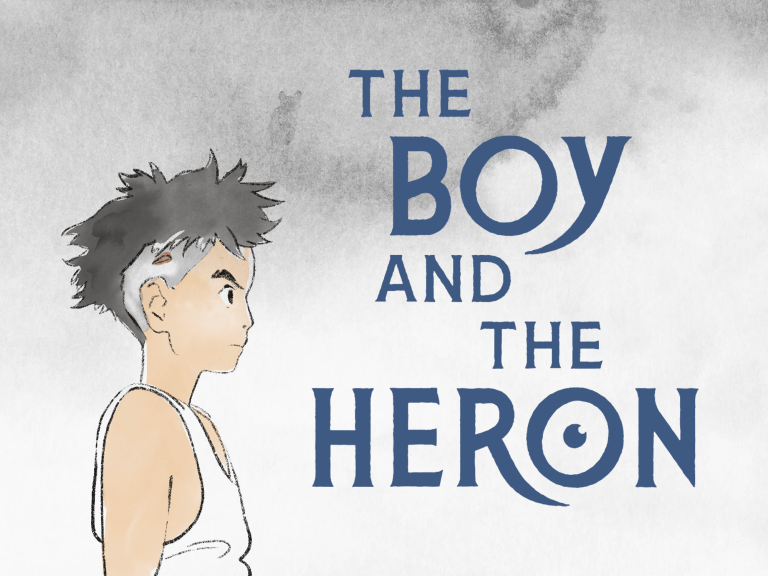We seem to be entering an age in which media are increasingly “contentified,” for lack of a better term. Movies feature predictable stories and soulless spectacle. Their simple messages leave your mind as soon as you leave the theater.
Hayao Miyazaki’s latest film, “The Boy and the Heron,” however, is decidedly not contentified.
The story, for one, is far from a basic rehashing of the three act structure. Set during World War II, “The Boy and the Heron” follows Mahito Maki (voiced by Soma Santoki), a young boy who moves with his father to the countryside after his mother dies in a hospital fire. After several unsettling encounters with a gray heron (voiced by Masaki Suda), Mahito is lured toward a strange tower and gets sucked into a fantastical world.
Even by Miyazaki’s standards, the plot is hard to comprehend. Events and worlds blur into each other like the proceedings of a dream, and many key elements of the story are left unexplained. It’s mystifying and slightly messy, but I argue that the plot is not the point of the movie. When watching, simply experience the film and let the visual storytelling wash over you. There will be time for analysis later.
And there is so much to analyze. This is a deeply personal film, and Miyazaki clearly has a message to impart upon his audience. What exactly is that message? A week after watching the film, I am still struggling to grasp it. Maybe it’s about grief, or acceptance, or learning to live in an imperfect world. It feels like it’s all of these things and more. (And what of the omnipresent bird imagery?)
One cannot review a Studio Ghibli film without talking about the animation. “The Boy and the Heron” is exceptionally beautiful — maybe one of the most beautiful animated films of all time. The colors are lush and vivid (as has come to be expected of the studio), and the backgrounds are rendered with incredible detail.
Every line feels alive. Even the ordinary scenes, like a shot of Mahito sleeping, are interesting. The extraordinary scenes, though, are truly something to behold. Recurring flashes of the night that Mahito’s mother dies are impressionistic and dizzying. Watching a group of puffball-adjacent creatures called warawara learn how to fly for the first time, you’re bound to get goosebumps.
Supplementing the gorgeous animation is an ethereal soundtrack by longtime Miyazaki collaborator Joe Hisaishi. Much of the time, the score is subtle. Subdued solo piano evokes feelings of emptiness and grief; aimless, plucked notes linger in the air, mirroring Mahito’s lack of direction. Shimmering strings are at times ominous, holding dissonant cluster chords at an uncomfortable register, and heart-wrenchingly beautiful at others.
Memorable melodies present in Hisaishi’s other Ghibli scores are largely absent from “The Boy and the Heron.” “Ask Me Why,” this film’s equivalent of the iconic “One Summer Day” or “The Legend of Ashitaka,” is a slightly hesitant piano melody that is gorgeous, but not necessarily hummable. However, it’s a fitting choice for a more introspective film. And when the orchestra is allowed use of its full strength, it’s all the more powerful.
Hayao Miyazaki has famously failed to follow through with his retirement announcements. His first failure was in 1997, after the release of “Princess Mononoke”; the second was in 2001, after “Spirited Away” and the most recent attempt was in 2013, after “The Wind Rises.”
Although Miyazaki has reportedly rejected the rumors that “The Boy and the Heron” will be his final film, there is an unshakeable sense of finality to this movie — in many ways, it feels like the work of an old man reflecting upon his life. Beautiful, moving and strange, “The Boy and the Heron” reminds us that there is still room for sincere artistic expression in this age.
Editor’s Note: This article is a review and includes subjective thoughts, opinions and critiques.
